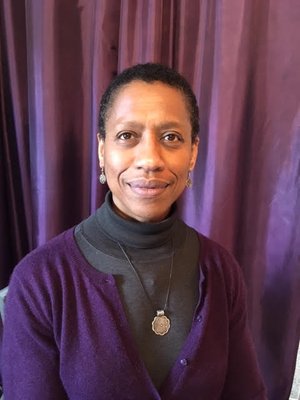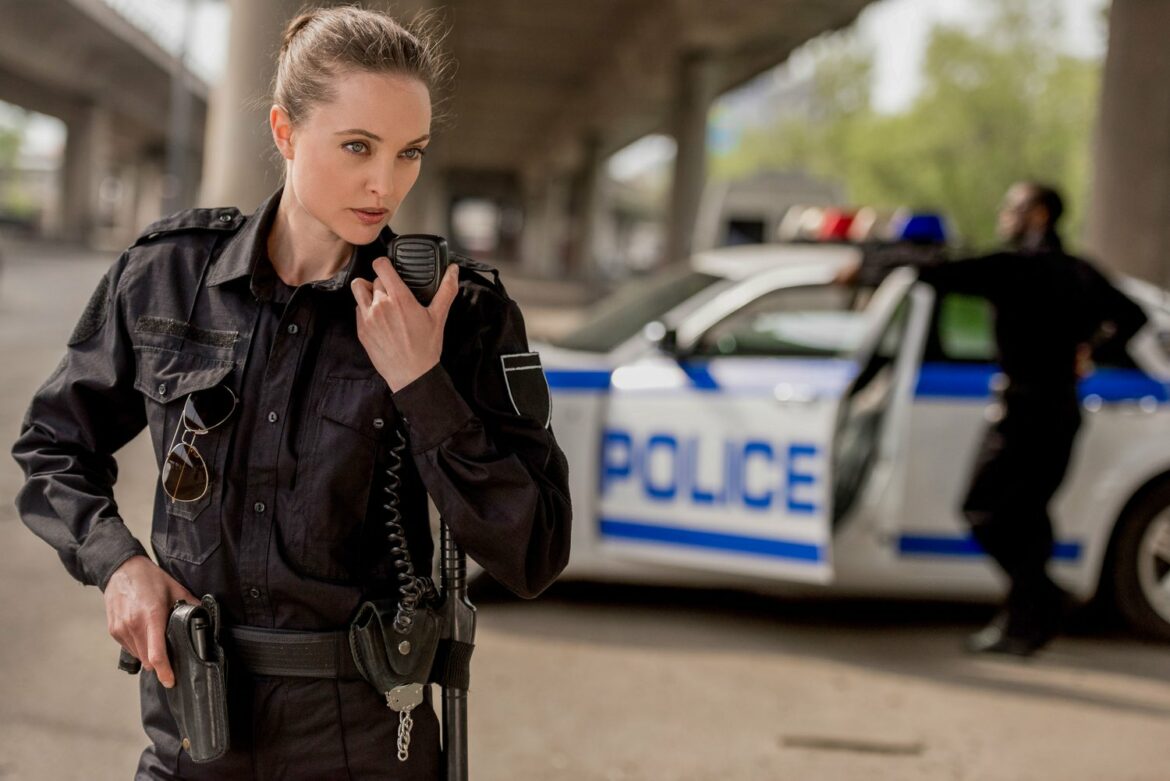
Implicit bias refers to the unconscious attitudes and stereotypes that influence our actions and decisions. Everyone has biases that impact our perception of people and situations, sometimes leading to unfair treatment and discrimination. In New Hampshire, like in many other states, there are concerns about the prevalence of implicit bias in law enforcement and its impact on communities of color. We spoke with Claire Holston, a Board Member of the New Hampshire Center for Justice and Equity, and a collaborator of this Implicit Bias Training, originally created under the Race & Equity Series of New Hampshire Law Enforcement workgroup and Scott Meadors and Associates, about addressing unconscious bias:
“The fundamental thing is acknowledging that we all have biases, accepting that fact, and understanding how those biases show up in us and everything that we do. Because if we don’t even acknowledge that we have bias, how can we even begin to challenge it? That’s the first piece that we try to get through in training.”
— Claire Holston
The New Hampshire State Police is the primary law enforcement agency in the state, with jurisdiction over all of New Hampshire’s highways and state properties. The agency has more than 400 officers, including troopers, detectives, and other specialized units. Additionally, there are 211 local police departments across the Granite State as well as Sheriff Departments. Data collected between 2016 and 2021 shows that there were 246 registered civilian complaints of police misconduct related to racial discrimination, use of force, and alleged police crimes.
Implicit Bias Training has been in the works for more than five years, but it gained momentum following a recommendation from the Commission on Law Enforcement Accountability, Community, and Transparency (LEACT). The LEACT commission was established by executive order of Governor Sununu days after the murder of George Floyd by police officer Derek Chauvin in Minnesota. The next police bias training is set for May 10th in New Hampshire.
“One of our main goals was to have key stakeholders present at the training because we felt confident that we could get their buy-in on it. And while we weren’t successful in our original target, in the two pilot programs that took place in October 2021, we got Director of Police Standards and Training John Scippa and Assistant Commissioner of Public Safety Eddie Edwards to attend. They were very impressed with the training package.”
— Claire Holston
Getting police chiefs and officers to attend implicit bias training has been a challenge.
In the pilot stages of the training program, as well as an attempt at a subsequent session, attendance was lower than expected. It was stated this could be attributed to a variety of reasons, such as police staff shortage and the fact that it was an all-day event. Yet, another reason could be tied to a widespread sentiment that there is no racism and discrimination in New Hampshire law enforcement because police force incidents aren’t as critical as in the rest of the country.
Data compiled by the Washington Post shows that while nationally almost half of the people fatally shot by police are white, Black Americans are shot more than twice the rate of White Americans. In New Hampshire, data reveals that since 2015, police officers fatally shot 16 men, 13 of whom were white and three of an “unknown race.”
However, Claire Holston explains that the point of this implicit bias training is not to put police officers on the spot but make is them aware of how their bias impact how they perform their jobs every day with training by a former police officer who is skilled in this area:
“One of the things we want to be careful about is how we deliver the training. We know that it is an uncomfortable subject, which is always going to make some people feel defensive or resistant. So, we want to address bias in a non-threatening way and ensure that people don’t pull away. Because when someone shuts down, there’s no further space for dialogue or listening.”
— Claire Holston
Traffic stops are one of the main cases of discrimination against NH’s BIPOC communities
Traffic stops are one of the most common forms of interaction between law enforcement and the public. A 2020 study by the New Hampshire ACLU found that black and brown drivers are nearly twice as likely to be pulled over by the police as white drivers. This pattern is consistent with national trends, which suggest that BIPOC drivers are disproportionately stopped and searched during traffic stops.
This can lead to a lack of trust between the community and the police and can undermine the legitimacy of law enforcement. Another issue, according to Claire Holston, is the lack of data:
“There’s not enough data that combats people’s assumptions. We have some data showing that a disproportionate number of people of color get pulled over, but there’s no data on what the stops are or why they happen. And it seems like no one collects the data because there’s always a funding issue or no consensus on what adequate data is. So, we might be making assumptions that aren’t true. We need data to support making appropriate changes where necessary.”
— Claire Holston
Representation matters, but addressing bias doesn’t stop there
For Claire Holston, the lack of diversity in New Hampshire also contributes to unconscious, deeply ingrained biases. She was born and raised in Connecticut, went to college in Massachusetts, and noticed a big difference in demographics when she moved to New Hampshire in 1985.
“If our law enforcement is majority white and majority male, police officers don’t have enough diversity within their environment, which means there are fewer opportunities to learn from others and have different experiences. When you live in one of the three states with the highest white populations, it’s a challenge to get BIPOC folks here and keep them here.”
— Claire Holston
That lack of representation, where communities of color don’t see a lot of people who look like them in general and especially in law enforcement, will also feed into the mistrust and distancing between BIPOC communities and the police.
On the other hand, diversity hiring policies will only do so much. As revealed in the Community Conversation on the Culture of Policing hosted by NHCJE in early March, a lot of members of the BIPOC community in the Granite State feel that racial bias and discrimination are broader issues, happening at a systemic level. And to address it, action needs to happen across a similar latitude:
“We’re hoping that we can present the implicit bias training to a larger law enforcement audience. This is an intentional, slow process that will happen over time, but our goal is to get a room full of police officers and law enforcement agents to participate in the training.”
— Claire Holston

Recently retired from the corporate world, Claire Holston is an In-Home Personal Trainer. Claire is passionate about her work in social justice. She serves on a number of Boards and Committees in the area. Claire sits on the Commission on Religion and Race for the New England Area Conference of the United Methodist Church. She has been a part off the Race & Equity Series of NH from the beginning serving as member and a facilitator of the Law Enforcement Criminal Justice Workgroup, the Advisory Group, Transition Team and now Member of the Board. Claire resides with her wife of 40 years and their three Siberian Huskies here in New Hampshire.





